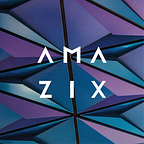Surviving Blockchain Events in the Shadow of Coronavirus
Novel Coronavirus is looming large over many of us in the blockchain industry, especially those who are preparing to travel to conferences and events and stand in close proximity with a long line of people we don’t know from across the world.
A number of health organizations globally have advised against gathering in large crowds at all costs. If you do, however, decide to go ahead and attend such events, there are some things that you can do to significantly reduce your risk of exposure to the virus.
Only travel to approved “safe” countries
The CDC recommends that travelers avoid all nonessential travel to China, Iran, Italy and South Korea, and recommends that older adults and those with chronic medical conditions should consider postponing nonessential travel to Japan. The CDC also notes that Singapore, Taiwan and Thailand harbor a significant risk of community spread. The CDC defines a risk of “community spread” as “[a situation in which] people have been infected with the virus, including some who are not sure how or where they became infected.” At the time of writing, the extent of virus spread is not sustained or widespread enough to meet the CDC’s criteria for a travel health notice, however, travelers would likely be well advised to take precautions, or even cancel travel to these destinations if possible.
Conferences and events do not constitute “ essential travel “. If the event that you are attending is in any of the places listed above then you should avoid it. Instead opt for emailing any attendees that you had intended to meet with, explain the reasons that you chose not to attend, and arrange some form of digital meeting. In such exceptional circumstances, it is likely that most will be understanding of this.
Hand hygiene
Though you may not consciously notice it, conferences are high in hand contamination opportunities. From shaking hands to exchanging cards, these events are a haven for germs. There are, however, a number of ways to reduce your exposure risk.
First, avoid handshaking. Though deeply ingrained social business etiquette, handshakes are an incredibly potent mode of contamination. Refusing handshakes may, at face value, seem rude and business suicide-like. However, simply explaining your reasoning to any new acquaintances made will likely be met with acceptance. In light of current circumstances, they may well follow suit. Next, avoid taking business cards. In the digital age where everyone has a camera phone, simply snap a picture of the card or take contact details verbally.
Should you decide that avoiding handshakes and refusing business cards is intolerably rude, there are other ways to protect yourself. The CDC recommends that people “wash hands often with soap and water for at least 20 seconds; especially after going to the bathroom; before eating; and after blowing your nose, coughing, or sneezing.” We recommend washing your hands after every handshake and each time you take a business card.
It may be difficult running back and forth from the bathroom after every new meeting so another option is to carry an alcohol-based hand sanitizing gel. This can be used to clean your hands frequently and casually though we still suggest washing your hands as often as possible too.
Originally published at https://www.amazix.com on March 10, 2020.
